I tell you the truth, anyone who has faith in me will do what I have been doing. He will do even greater things than these, because I am going to the Father. And I will do whatever you ask in my name, so that the Son may bring glory to the Father. John 14:12-13
When they saw the courage of Peter and John and realized that they were unschooled, ordinary men, they were astonished and they took note that these men had been with Jesus. Acts 4:13
Therefore, in the present case I advise you: Leave these men alone! Let them go! For if their purpose or activity is of human origin, it will fail. But if it is from God, you will not be able to stop these men; you will only find yourselves fighting against God." Acts 5:38-39
However, I consider my life worth nothing to me, if only I may finish the race and complete the task the Lord Jesus has given me--the task of testifying to the gospel of God's grace. Acts 20:24
Then Jesus came to them and said, "All authority in heaven and on earth has been given to me. Therefore go and make disciples of all nations, baptizing them in the name of the Father and of the Son and of the Holy Spirit, and teaching them to obey everything I have commanded you. And surely I am with you always, to the very end of the age." Matthew 28:18-20
After Jesus rose from the dead, "He appeared to them over a period of forty days and spoke about the kingdom of God." Acts 1:3 The Bible records very little of what He said. Yet, what He did say echoed through the Gospels and Acts: "But you will receive power when the Holy Spirit comes on you; and you will be my witnesses in Jerusalem, and in all Judea and Samaria, and to the ends of the earth." Acts 1:8
This charge, this commandment, was for the early Church, all through the centuries, to the Church in 2019. We are to be His witnesses, for God's glory and for the salvation of others, to the ends of the earth. It's not given to a select few who God "calls," but to all of us.
The truth and urgency of this commandment was not really clear to me until a few years ago. I had been asking God to "break my heart for what breaks Yours." And He did. Beginning with a concern for orphans, then for the persecuted church throughout the world and then for missions, He has laid this commandment on me and it is one that I desire, with every ounce of my being, to obey.
As this passion for missions has grown, I have become more and more interested in learning about missionaries of the past and present. Ordinary people who God used to do extraordinary things. I find great encouragement as I read about how God met their needs, encouraged, provided and protected them and allowed the Gospel to be preached to the ends of the earth through them.
As I have gained encouragement, as my faith in God has grown and as I have had a deeper passion for missions through reading their stories, I am going to share their stories with you, in the hopeful prayer that you too will be encouraged toward a greater involvement in Christ's Great Commission.
You show that you are a letter from Christ, the result of our ministry, written not with ink but with the Spirit of the living God, not on tablets of stone but on tablets of human hearts. 2 Corinthians 3:3
Jesus did many other things as well. If every one of them were written down, I suppose that even the whole world would not have room for the books that would be written. John 21:25
The next few months of this blog will only scratch the surface of the men and women God has used to further His Kingdom. May you gain greater faith through their testimonies and believe that you, too, can be used by the Lord to share the Good News of Jesus with the world...not just in your own backyard but to the ends of the earth.
I plan to highlight missionaries in chronological order. Thus, I will begin with the "Apostolic Church" from Christ to AD 500. Below is a list of what happened to Jesus' disciples and early followers. You will note that they all died a martyr's death, except John. But also notice the regions of the world where the Lord took them as He spread the Gospel through His followers:
Matthew -Suffered martyrdom in Ethiopia, killed by a sword while carrying out Jesus' commission to reach the world with the Gospel.
John - Faced martyrdom when he was boiled in huge basin of boiling oil during a wave of persecution in Rome ...However, he was miraculously delivered from death. John was then sentenced to the mines on the prison island of Patmos ...He wrote his prophetic Book of Revelation on Patmos. The apostle John was later freed and returned to serve as Bishop of Edessa in modern-day Turkey. He died as an old man, the only apostle to die peacefully.
Peter - He was crucified upside down on an x-shaped cross in Rome. According to church tradition it was because he told his tormentors that he felt unworthy to die in the same way that Jesus Christ had died.
Philip - He was crucified in Hierapolis, in present day Turkey.
James the Less - Son of Alphaeus, the leader of the church in Jerusalem, was also assigned the area of Syria as his mission field. He was thrown over a hundred feet down from the southeast pinnacle of the Temple when he refused to deny his faith in Christ. When they discovered that he survived the fall, his enemies beat James to death with a fuller's club.
James the Great - Son of Zebedee, was a fisherman by trade when Jesus called him to a lifetime of ministry. As a strong leader of the church, James was ultimately beheaded at Jerusalem ...
The Roman officer who guarded James watched amazed as James defended his faith at his trial. Later, the officer walked beside James to the place of execution. Overcome by conviction, he declared his new faith to the judge and knelt beside James to accept beheading as a Christian.
Bartholomew, also known as Nathaniel - Was a missionary to Asia ...He witnessed for our Lord in present day Turkey ...Bartholomew was martyred for his preaching in Armenia where he was flayed and then crucified.
Andrew - His missionary travels may have taken him as far as Scythia (southern Russia) and included time around Ephesus with John. He was crucified on an x-shaped cross in Patras, Greece ...After being whipped severely by seven soldiers they tied his body to the cross with cords to prolong his agony. His followers reported that, when he was led toward the cross, Andrew saluted it in these words: 'I have long desired and expected this happy hour. The cross has been consecrated by the body of Christ hanging on it.' He continued to preach to his tormentors for two days until he expired.
Thomas - Was stabbed with a spear in India during one of his missionary trips to establish the church in the sub-continent.
Simon the Zealot - The traditional account of Simon's missionary travels has him taking the road less traveled. He went south and west from Jerusalem, crossing the full breadth of northern Africa, passing through Egypt, Libya and Mauritania, and then up through Spain and even into the islands we now call Britain. All of these destinations fell within the boundaries of the Roman Empire. He is later found with Jude (Jesus' brother) taking the Gospel to Persia. He was sawn in half.
Judas, also known as Thaddaeus - Brought the Gospel to Armenia, present day Turkey and possibly as far as India. Was killed with arrows when he refused to deny his faith in Christ.
Matthias - The apostle chosen to replace the traitor Judas Iscariot, traveled as far as Sevastopol, Ukraine before he returned to Jerusalem where he was stoned and then beheaded.
Mark - Died in Alexandria , Egypt , after being dragged by horses through the streets until he was dead.
Luke - Was hanged in Greece as a result of his tremendous preaching to the lost.
Paul - Was tortured and then beheaded by the evil Emperor Nero at Rome in A.D. 67. Paul endured a lengthy imprisonment, which allowed him to write his many epistles to the churches he had formed throughout the Roman Empire. These letters, which taught many of the foundational doctrines of Christianity, form a large portion of the New Testament.
“He is no fool who gives what he cannot keep to gain that which he cannot lose” Jim Elliot, modern-day missionary to Ecuador, martyred that many more might be saved.




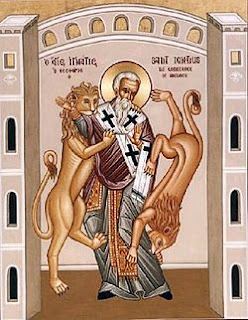

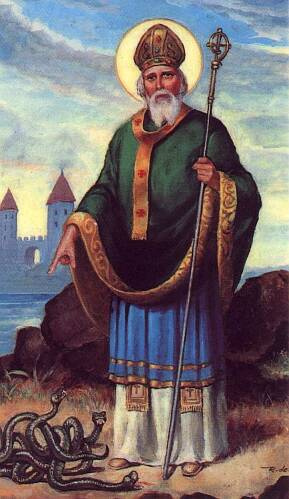
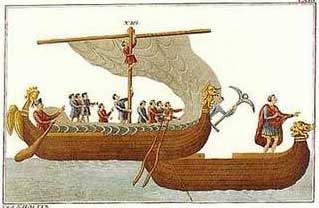
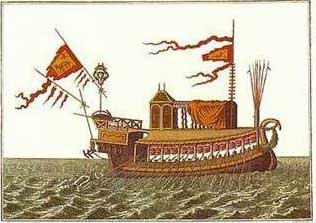

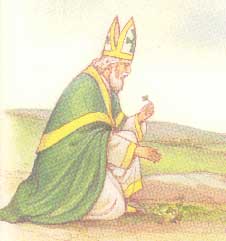 One day, I was telling the people about God. They did not understand. So I picked a shamrock and showed them that there are three leaves but only one plant. Then the people could better understand that the Father, Son, and Holy Spirit make only one God. That is why, when you see a picture of me, I am usually holding a shamrock.
One day, I was telling the people about God. They did not understand. So I picked a shamrock and showed them that there are three leaves but only one plant. Then the people could better understand that the Father, Son, and Holy Spirit make only one God. That is why, when you see a picture of me, I am usually holding a shamrock.






